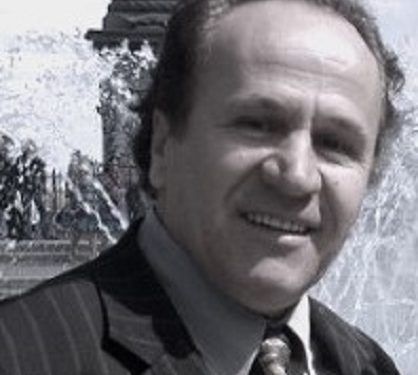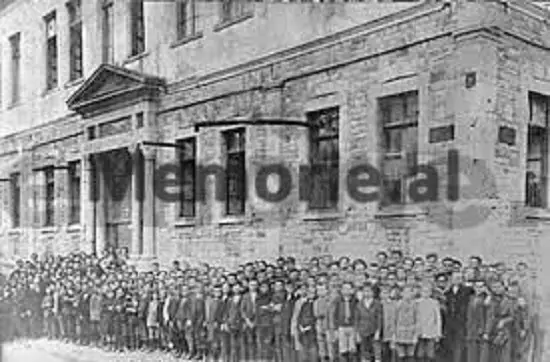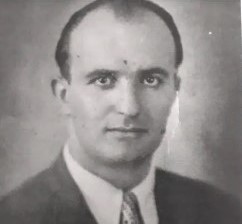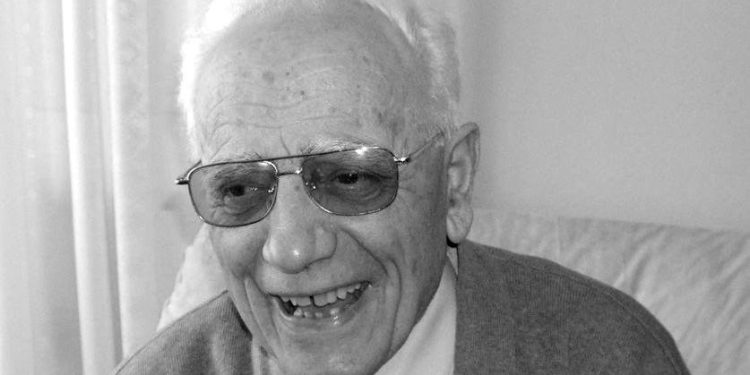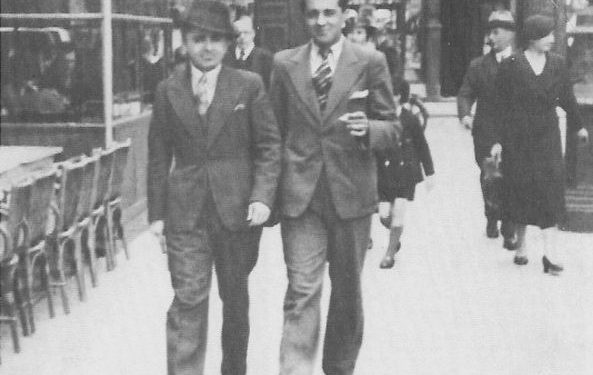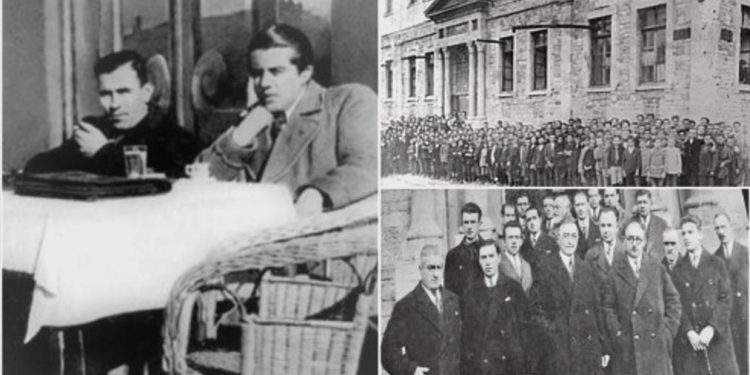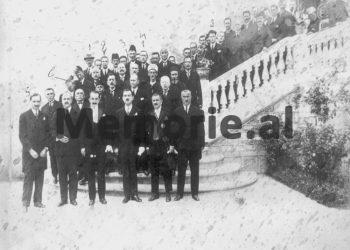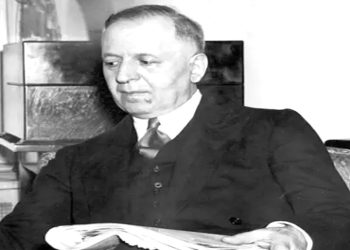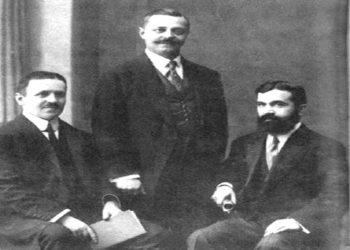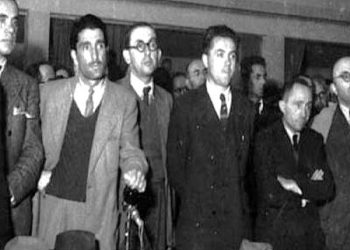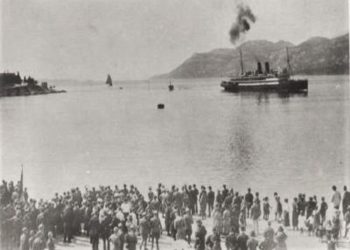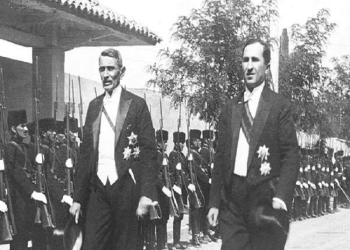By Kristaq Turtulli
Memorie.al / “What is inscribed on the coin?” – asked Jesus Christ. “The image of Caesar,” they said. “Then give to Caesar what belongs to Caesar and give to God what belongs to God,” said Jesus. Well, as Jesus Christ said two thousand years ago. Let us give each person what belongs to them, without hesitation, without passions, without complexes. To those individuals who have played and continue to play significant roles in the fate of the Albanian nation, throughout the centuries and decades, for better or for worse. We who have lived through and seen clearly with our eyes, know well, and we must tell those who come after us, as it truly was.
For a moment with sincerity, we think that all this water has run under the bridge and we will not turn our heads back to the past. We will move forward, without stopping. It has not been a short time; it has been 24 years since it was thought that the overturning happened. The desire for a look ahead, for a new democratic life. With new progressive mentalities.
Among us, during this period, a new generation has grown up under different conditions and mentalities, which does not know the truth as it is. With indifference, they take it as it is told to them. It is often said that they do not want to hear anything about what happened 24 years ago. Meanwhile, for our generation, and further, whispers among ourselves; to be honest, we are exhausted. Because since childhood, we were forced to memorize standard slogans, stereotypes; for the party, for Enver, for the dictatorship, and for proletarian internationalism. For the merciless violence against the overthrown class.
Nationalism, down to its complete annihilation. We read these everywhere posted on walls. We repeated these every morning, every lunch, and every evening. Often, we were awakened in the middle of the night and ordered to repeat, to say it out loud. Our sleep would be disturbed. Our hearts would race, and our eyes would tear. Eyes closed, like somnambulists, we repeated it without ever wanting to think about it, let alone say it.
They deafened our ears for forty-five years, to hear as if a flute were playing in one hole. Fortunately, even though a bit late, it was understood by everyone that the “old flute” did not have just one hole but many holes, where you could place your fingers and produce other sounds.
But there are those who do not get tired and do not get bored. Those, the former powerful, who are now satiated with money, leaving the people in poverty, and they return again and again cunningly, finding other blind paths, supposedly unknown, like for example: “Nationalism.” They later raise it on the Albanian stage. They make it indisputable truths, and slowly their dream is restored, with pockets full of money. The Marxist-Leninist Institute has been overthrown, but it still exists in those who created it and in those who were taught…!
Today in Albania, with the change in political direction, with the coming to power of another party, the pathologies of nostalgia have awakened. They always rise and fall, ebb and flow, and continue to clash in memory even to this day. Perhaps even more, despite having 24 years of democracy…! Now they have begun to awaken and to hear new unwashed voices regarding the “nationalism” of Enver Hoxha.
In the meantime, another hole has opened in the “flute,” even though the “flute” is quite old, rotten with time. But they have begun to play this hole. What a paradox?! Perhaps it is not a paradox but a Trojan horse. If he himself were alive and heard such a thing, he would be furious and would thunder: “Who dares to call me a nationalist?!” Perhaps it is unknown, because he always trembled at such ideas.
Certainly, it never crossed his mind that they could do such a thing. He was the one who, with conviction and full awareness, exterminated with fire and iron the noble class and Albanian nationalism, working and collaborating against the Kosovo people. He was the one who sowed in us proletarian internationalism and the dictatorship of the proletariat, the Enverist experiment. Nationalism for him was like the bloody ghost of Banquo, which haunted and tormented the murderous king Macbeth.
The empirical philosopher Thomas Reid stated: “Suppose an officer was flogged as a boy in school for stealing from a garden, that he received a standard from the enemy in his first campaign, and that he became a general at an advanced age; I think it should also be accepted as possible that when he received the standard, he was aware that he had been flogged in school, and that when he became a general, he was aware of receiving the standards, but had absolutely lost awareness of his flogging.”
Reid further argues that, according to the criterion of personal identity spoken of by John Locke, the general is the same person as the officer, and the officer is the same person as that boy, but since there is no psychological connection between the boy and the general, it follows that the general and the boy are not the same person.
The power of the argument is not just that we intuitively think that the boy and the general are the same person. A defender of Locke might say that in a very true sense, the general is a person very different from the child. In fact, Reid’s argument concerning the brave officer shows that Locke’s position results in a contradiction that causes, as Reid puts it, that “the general is, and at the same time is not, the same person as the one who was flogged in school.”
This outcome occurs due to a logical principle known as the transitivity of identity. In short, the transitivity of identity is the principle that if A = B and B = C, then A = C. Reid’s “officer” argument demonstrates that Locke’s criterion of personal identity contradicts this rule. As a result of this contradiction, it rejects Locke’s criterion as a necessary or sufficient condition for identity.
I was reminded of a cousin of my father, Aleko Turtulli. I was very young back then. He had been a fellow student at the Lyceum of Korçë, which our family gifted to the city. Aleko was also a fellow student in Montpellier with Enver Hoxha. At the same time, we as a family supported foreign students from various regions of Albania with good academic results. We provided material assistance as well as traditional meals in the family.
But more than others, our family supported the delicate young man Enver Hoxha, since Aleko saw him as a weak, fragile, sincere boy. He stood aside, shy, somewhat frightened in the corner of the wall of the lyceum. Aleko took him in, encouraged him, and became friends with him. In difficult moments, he supported him morally and materially. Most of the time, for various needs, he lent him money, which was never returned.
With the establishment of the dictatorship in Albania, Aleko was sentenced to prison twice. And when he came out of the long imprisonments in the infamous prisons, the tall, healthy, handsome man was completely disfigured, a living corpse. He always came to visit our home and was extraordinarily polite. Every Saturday, precisely at three in the afternoon, he would arrive. Hunched over, leaning on a black umbrella, which he never removed from his hand, winter or summer. He climbed the stairs with difficulty, breathing hard, and knocked lightly on the door with his bent index finger.
His entrance into the room was completely different from all other guests in our home and the people I had known in my life. He would stretch his head, then half of his body, and then enter fully into the room. The body of Aleko Turtulli was not like everyone else’s but was mutilated. He was bent in two, caused by the damp cells and incessant tortures. My father and Aleko would retreat to the corner of the room away from the windows, because there would always be someone lurking below the windows. They would sip hot coffee and speak softly to each other.
What was said on ‘Voice of America’ then turned to the place where the soul hurt: “How could you help him, Leko,” my father would say, “when you saw what kind of man he was. Look what he has done to us, he has torn us apart and now he follows us step by step and is exterminating all of us. Even worse is that he knows very well what our family has done for Korçë and Albania.” Aleko would murmur, sip his black coffee, and mutter: “But he is an actor, Petro, an actor and turned actor. He twists it, makes the unreal real, leaves you with nothing in hand.
He kills you at night, cries for you during the day, and behind your back, he robs you…! Look at me, his childhood friend and classmate, how he has reduced me. Do you remember when he came to visit us in Korçë? I had been out of prison for a few months and was working as a painter. He was accompanied by Myftar Grabocka, chairman of the Executive Committee of the Korçë district, as well as many other officials. As far as I remember, I was plastering the wall of a new building. Myftari stopped in his tracks and pointed with his finger to where I was working, up on the ladder. – ‘One of the declassed class, we’ve put to paint the walls,’ he said.
‘Very well done, that’s what the overthrown class deserves,’ said Enver Hoxha. – ‘But who is that?’ he asked. ‘Aleko Turtulli, you know him well,’ Myftari replied. The people of Korçë knew the friendship he had with me. – ‘Ah yes, and he’s painting the walls,’ Enver Hoxha said, casting a blurry look at the many followers around him, then added: ‘Get him away from there and place him somewhere better.’
A few days later, surprisingly, I was assigned to work as an economist in a company. I flew with joy; I started to regain my health, and I said to myself that thankfully there is still hope, even though we continued to live at the ‘Tower of Ashes.’ But my work as an economist did not last long; it lasted only a few months. At midnight, the bell rang in Myftar’s office. It was him. Among other things, he asked about me. – ‘We’ve placed him to work as an economist in a company,’ according to your order, comrade…!’ ‘My order?!’ he said in surprise.
‘How do you command?! What are you saying?! Don’t make me a fool; find a reason and lock him up, that’s my order.’ You know well, to punish us, a reason is very easy to find. The next day I found myself in handcuffs. The second imprisonment and sentence were harsher than the first. It brought me down to this state. What can you expect from him who ordered his brother-in-law, Bahri Omari, a pure nationalist, to be killed?” I remember very well how he trembled when he spoke and how the worn-out wrinkles of Aleko Turtulli turned pale.
Year after year, the poor Aleko Turtulli hunched over, shrank, until he wasted away. But like the suffering and torture of our people, this happened to hundreds and thousands of nationalists from the noble Albanian class. I can mention the pure-hearted, intellectual, noble, and ardent nationalist, Xhevdet Kapshtica. He came from a distinguished Albanian family that tied their lives to the interests of the nation. Xhevdet was brutally persecuted, and his family was imprisoned, like rarely faced by others.
The great, fearless captain, the unwavering patriot Koli Rodhe, a prominent rebel, who traversed mountains and buildings day and night, passed through Turkish hafije, kept the sacred red-and-black flag hidden in his bosom, to raise it on the great day of independence in Vlorë. Koli Rodhe was pursued like no other, for the “crime” of simply being an Albanian and a pure nationalist. For this “crime” of being a nationalist, he was arrested, sentenced, and imprisoned in the infamous Spaç prison.
But he sincerely believed that one day his innocence would be proven, which is why he kept a neatly pressed suit under his pillow and secretly unfolded it so it wouldn’t get wrinkled. He hoped that when he was released from prison, he would meet his wife, children, and friends, appearing well-dressed and groomed. But his dream of liberation was buried in the ashes of the Burrel prison yard, without a trace. In that infamous communist prison, many entered, but very few came out. His family, his wife, his children suffered and were persecuted throughout their lives. His son-in-law, Genc Leka, was one of the martyrs, poets of Librazhdi.
Thoma Orogollai, a classic personality, his words on the eve of the fascist invasion were magnificent, from a true patriot and nationalist. Llazar Fundo, known as Zai, who was a dreamer, an idealist, and an outstanding intellectual, with excellent knowledge of nine foreign languages. When he was in Moscow, he saw with his own eyes the poverty and hypocrisy of the communist system. He was shocked and disappointed. He protested against this situation. Stalin, upon seeing the thoughts and issues posed by this individual, ordered his arrest. One of his close friends warned Zai about the danger that threatened him.
Zai left Moscow, passing through the dark waters of the city at night. Later, for his beliefs, he was sentenced by the fascists in Ventotene, a remote island and internment camp in Italy. Zai Fundo eventually convinced himself that true liberation and the unification of Albania with all Albanian territories were the nationalists and right-wing forces; he allied himself with the great Kryezi family. Enver Hoxha, seeing the danger and reputation Zai Fundo had, ordered that he be arrested at all costs. Zai was treacherously captured and sentenced, dragged behind the tail of a horse through the rough and stony terrain of Kolesjan in Kukës, where he breathed his last.
Let us remember here that the blind complexity led to the bones of the great Gjergj Fishta being thrown into the Buna. The great poet, honor of the Nation, sang to his homeland with such grandeur and love in ‘Lahuta e Malësisë.’ I could mention the distinguished patriot, Kristo Kirka, his suffering and persecution. The dreamer student Sami Repishti, who suffered in prison because he wanted a true, ethnic Albania, he is a living story.
Even after his release from prison, escape, and arrival in the United States of America, Sami Repishti worked for the homeland and the nation with flesh and soul. Even today, although he is elderly, Sami Repishti continues to engage in distinguished activity for the nation. And others, many other patriots and nationalists, have been killed, persecuted, and maimed. The list of great nationalists knows no end.
Enver Hoxha never thought, never liked, and never held the sacred costume of a nationalist, as it did not suit him. If he had been such, he could not have lived so long at the peak of Olympus, in power. He created whatever he wanted. He was unassailable. He killed, imprisoned, interned, and ruled for more than forty years in a poor Albania. With the terrifying slogan; “Even if we eat grass, we will not violate the principles.” What principles were they talking about?! To maintain his power, because the people, in the conditions of extreme dictatorship, are extraordinarily obedient.
Because before them stood the loaf and the whip, whatever you tell them, the people will do! The people, under duress, when their brains are hidden, will have only a morsel of bread and a dim light, and blindly believe under demagoguery that; just like him, there are no others in the world! Because he is the only illuminating beacon in the world. And plenty of madness of this nature. The people are the people. They shout that I love them even when I have an empty stomach. But the poverty of the people was extreme, with rags and shoes worn out, the knife kept going more and more into the marrow. I remember that I couldn’t find a single lemon to moisten the chapped lips of my father when he got sick and was operated on.
This is why the collapse and overthrow of the system in Albania occurred, albeit late. The opening of some of the first flowers of the democratic spring…! It is understood that it cannot be denied, that in one way or another, he is inscribed in history, just as figures like: Ali Pasha Tepelena, Prince Vidi, Ismail Qemali, Esat Pasha Toptani, Avni Rustemi, King Zog, Fan Noli, Qemal Stafa, and others have been inscribed. We may mention him for other things, but never as a nationalist. Therefore, this expensive costume never suited him…!
It was said that Enver Hoxha considered and tried with body and soul for the brothers of Kosovo and Kosovo. It is now well known that the instigators for the creation of the Albanian Communist Party were the envoys of the Yugoslavs, Miladin Popoviç and others. They were the ones who incited the fratricidal war in Albania. Because it was known that if the right-wing forces, which had in their program, in the Decalogue, the first point; they would fight uncompromisingly for an ethnic Albania, which would include all Albanian territories, wrongfully taken by force. The Serbs knew very well that this would make Kosovo escape from their hands. Let us recall here the Bunaj Resolution (1943-’44).
This resolution aimed to create Kosovo as a unit of the Yugoslav Federation. But in fact, in Bunjaj, the Resolution was approved, in which it was stated: “…the final moment has come for the unification of the Albanian people of Kosovo with Albania…”! This resolution is written in both Albanian and Serbo-Croatian. This resolution is evidence that the national liberation struggle of Kosovo was a struggle for unification with Albania. This Resolution was similar to the idea of the Albanian right-wing forces, such as the ‘Balli Kombëtar’, the NDSH, etc., for the creation of an ethnic and democratic Albania.
A month after the Bunjaj meeting, the Politburo of the Communist Party of Yugoslavia declared these decisions invalid. Could Enver Hoxha and the Albanian communists in Albania and Kosovo rise up for the massacres committed by the Serbo-Montenegrins against our brothers of the same blood, the Kosovars? The demagogies and hypocrisies were raised and lowered based on the situations, but no massacre dared to be condemned, especially that of Tivar! This was a massacre never before seen in human history. For this massacre, and many other massacres, Enver Hoxha remained silent. The genocide against thousands of Albanians who were mobilized and sent to the Fourth Army of the Yugoslav Army.
The persecution of our brothers in Kosovo was extreme at the hands of the Serbs and their mechanisms. Suffering Kosovars, patriots, with their entire families, would flee, crossing the border, hoping to find support in Albania, their motherland. Many of them were arrested and punished, and their families suffered persecution.
State Security did not stop there, but sent Security officers, young agents, to destroy their lives even further. At that time, the Albanian state itself had created a situation that loomed like a black shadow, whispering; that in general, Kosovars coming to Albania are spies of the Yugoslav UDB, hence it was advised to keep a distance from them and to be careful.
Kosovo and our Kosovar brothers, through blood and sacrifice and with the generous assistance of the United States of America, finally achieved independence. This is a glorious event in the history of the Albanian nation. The dream of hundreds of thousands of patriots and martyrs became a reality. In Albania, the same situation deteriorated year by year. Albania was what it was, and it is what it is…! Therefore, one cannot speak of this expensive costume, because it never suited Enver Hoxha, one of the bloodiest dictators that humanity has ever seen! Memorie.al




